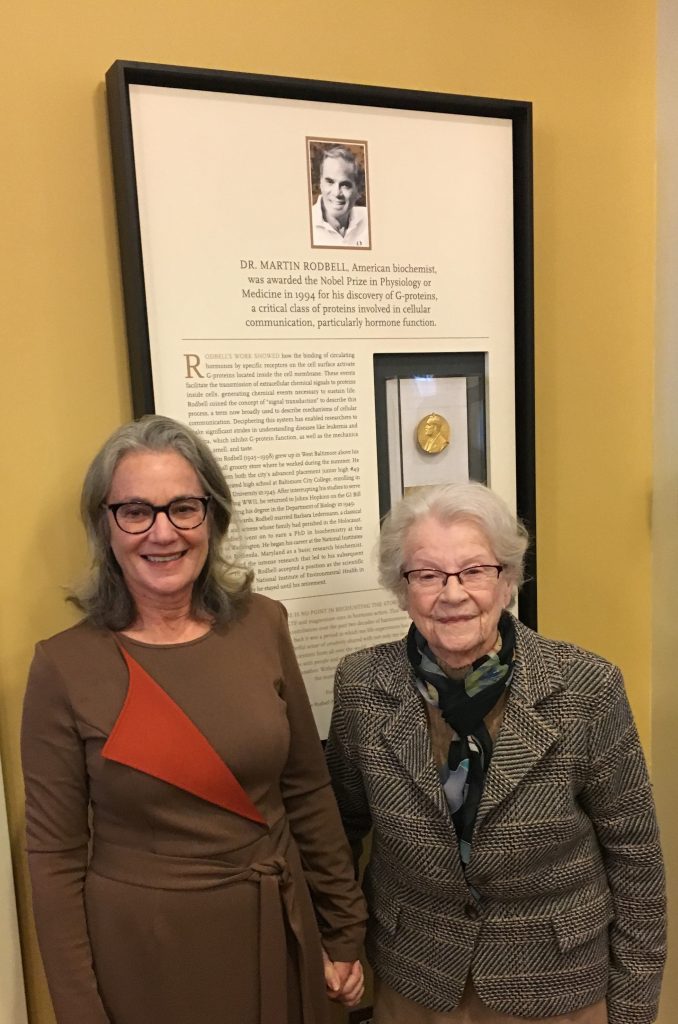Johns Hopkins UniversityEst. 1876
America’s First Research University
“An object carries all kinds of associations, thoughts, and inspirations.”

Suzanne Richardson’s words refer to a very specific object: her father’s 18-carat gold Nobel Medal.
Martin Rodbell, a 1949 graduate of Johns Hopkins, received the Nobel Prize in Physiology or Medicine in 1994 for his discovery of G-proteins, a critical class of proteins involved in cellular communication, particularly hormone function. He was working for the National Institute of Health in the 1970s when he made his breakthrough.
Understanding the structure and function of G-proteins and G-protein-coupled receptors has enabled researchers to make significant strides in understanding diseases like leukemia and cholera.
Rodbell, who died in 1998, grew up in Baltimore and attended the university on the GI Bill. He “always had fond feelings for Johns Hopkins, which is really where he first had this spark of interest in biochemistry,” says Richardson.
Twenty-eight people with ties to Johns Hopkins have received a Nobel Prize, including physician-scientist Gregg Semenza, a 2019 recipient of the Nobel Prize in physiology or medicine and currently on the faculty.
When it came time for Richardson and other family members — including three siblings and mother, who just turned 94 — to decide on a place to give and exhibit Rodbell’s medal, they chose Johns Hopkins.
Richardson says the Nobel Medal embodies Rodbell’s personality and lifetime of work. “There was a feeling about this medal. My father’s achievement was not just in science. It was in intellectual range, public service, and free knowledge. We really felt that it should be used in a way that he would want it to be, which is to inspire.”
The medal, on exhibit in Mason Hall on the Homewood campus, is certain to do just that.
Interested in learning more about gifts in kind?
Topics: Alumni, Faculty and Staff, Fuel Discovery